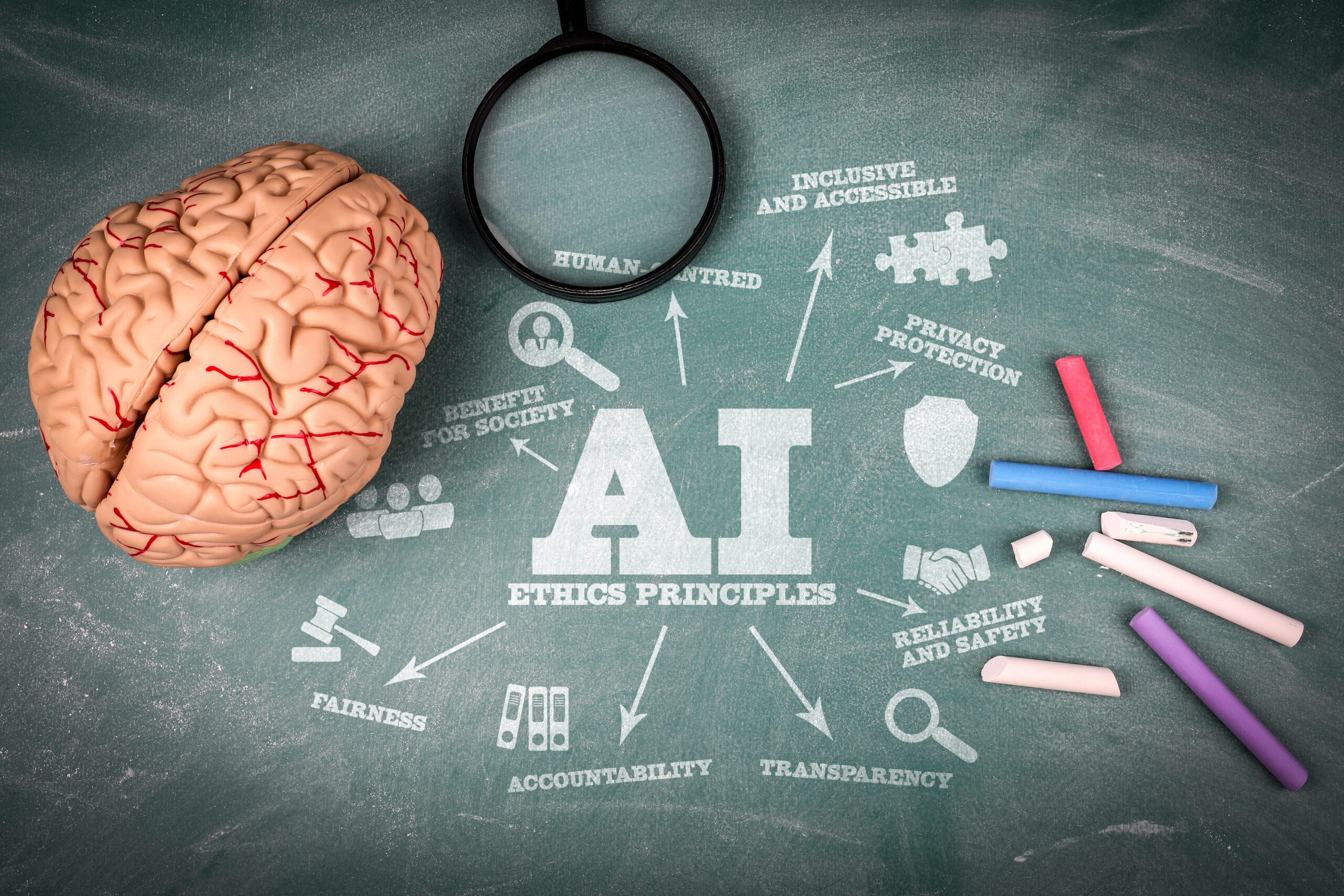Artificial intelligence dominates the headlines with equal measures of fascination and dread. Visionaries proclaim it will unlock human potential, while skeptics warn it will eliminate jobs, destabilize society, and force governments to provide sweeping handouts. Some believe it heralds a “post‑work” society in which billions are displaced. But fears that AI will “end the economy” are rooted, not in economics, but in misunderstanding basic Austrian principles. Technology changes how we arrange our resources—it does not abolish scarcity, value, or entrepreneurship. The principles of human action remain fixed. AI will disrupt occupations, but it cannot overturn the immutable laws of economics.
The Persistence of Scarcity
Austrian economics begins with the axiom of human action and the unavoidable reality of scarcity. As Ludwig von Mises demonstrates in Human Action,
Means are necessarily always limited, i.e., scarce with regard to the services for which man wants to use them. If this were not the case, there would not be any action with regard to them. Where man is not restrained by the insufficient quantity of things available, there is no need for any action.
This foundational insight reveals why AI panic is misguided. Even if artificial intelligence automates 99 percent of current tasks, scarcity persists because human wants are unlimited while means remain finite. Individuals must still economize—choosing among competing ends, allocating time and capital, prioritizing desires. Human action involves employing scarce means to achieve valued ends. AI may expand available means, but it cannot eliminate the fundamental economizing problem that gives rise to all economic phenomena.
The Austrian School’s emphasis on methodological individualism further clarifies this point. Each person faces unique circumstances, preferences, and constraints that no central authority can fully comprehend. AI amplifies this complexity rather than resolving it, creating new layers of choice and opportunity that require individual judgment and entrepreneurial discovery.
Subjective Value Theory Defeats Job-Centric Thinking
The most persistent fallacy in AI discourse equates employment with value creation. Critics argue that if machines replace workers, wealth disappears. This reflects a fundamental misunderstanding of Austrian value theory. As Mises explains, “Value is not intrinsic, it is not in things. It is within us; it is the way in which man reacts to the conditions of his environment.”
Murray Rothbard elaborates this subjective theory of value, demonstrating that economic value emerges from individual preference rankings revealed through action, not from labor inputs or material properties. Rothbard explains, “We deduce the existence of a specific value scale on the basis of the real act; we have no knowledge of that part of a value scale that is not revealed in real action.” A task performed by human labor has no inherent superiority over the same task performed by AI. Value depends entirely on how well it satisfies consumer wants and at what cost, as demonstrated through voluntary exchange and market prices.
This insight demolishes the “lump of labor” fallacy underlying AI pessimism. Replacing drudgery with automation doesn’t destroy value; it reallocates scarce human effort toward higher-valued activities as determined by consumer preferences expressed through market prices. The market process rewards entrepreneurs who discover superior ways to satisfy human wants, whether through human labor, artificial intelligence, or novel combinations thereof.
Entrepreneurship and Uncertainty
Where mainstream analysis fixates on “risk management,” Austrian economics emphasizes the entrepreneur’s unique role as uncertainty-bearer. Mises is explicit about this distinction:
Like every acting man, the entrepreneur is always a speculator. He deals with the uncertain conditions of the future. His success or failure depends on the correctness of his anticipation of uncertain events. If he fails in his understanding of things to come, he is doomed. The only source from which an entrepreneur’s profits stem is his ability to anticipate better than other people the future demand of the consumers.
AI magnifies rather than diminishes this entrepreneurial function. By lowering the costs of experimentation, research, and product development, artificial intelligence expands the scope for entrepreneurial discovery. Single individuals can now test market hypotheses that previously required entire teams. This increases competitive pressure to serve consumers while accelerating the market’s error-correction mechanism through profit and loss.
Creative Destruction and Capital Reallocation
Austrian capital theory explains why technological displacement generates wealth rather than destroying it. Capital goods and labor are heterogeneous factors that must be continuously reallocated toward their highest-valued uses as revealed by consumer preferences. Mises explains, “The market economy is the social system of the division of labor under private ownership of the means of production. Everybody acts on his own behalf; but everybody’s actions aim at the satisfaction of other people’s needs as well as at the satisfaction of his own.” The market coordinates this reallocation through the price system and entrepreneurial profit-seeking.
Historical evidence supports Austrian theory. Agricultural mechanization freed over 90 of the workforce for other pursuits without creating permanent unemployment. The Industrial Revolution similarly transformed artisan production while generating unprecedented prosperity. Each wave of creative destruction followed the pattern Mises described: temporary displacement as markets readjust, followed by higher productivity and living standards as resources flow toward more valued uses through the coordinating function of market prices.
AI represents another chapter in this ongoing process. Current applications already demonstrate the pattern: automated customer service creates opportunities in AI training and management; algorithmic trading generates demand for quantitative analysts and system architects; machine learning displaces routine data analysis while creating roles in model development and interpretation. This continuous reallocation occurs through the same market mechanisms that Mises identified as essential to economic coordination under the division of labor.
The Knowledge Problem and Central Planning
Friedrich Hayek’s insight about dispersed knowledge explains why government attempts to “manage” AI transformation will likely fail. As Hayek observed, “The curious task of economics is to demonstrate to men how little they really know about what they imagine they can design.” Central planners lack access to the tacit, context-specific, qualitative knowledge that individuals possess about their own circumstances and preferences.
This knowledge problem becomes acute during rapid technological change. Policymakers cannot predict which AI applications will prove most valuable, which skills will emerge as critical, or how consumers will adapt their preferences to new possibilities. Only the market’s decentralized discovery process—guided by price signals, profit incentives, and competitive pressure—can coordinate these complex adaptations.
Even with advanced computing power, central authorities cannot replicate the market’s information-processing capabilities because they lack access to the subjective valuations that give rise to market prices. AI may enhance computational capacity, but it cannot solve the fundamental problem of aggregating and coordinating dispersed subjective knowledge.
Policy Implications: Freedom Over Intervention
Government intervention will likely impede rather than facilitate beneficial AI adoption. Proposals for universal basic income, job guarantees, and retraining programs reflect the same planning mentality that Mises and Hayek demonstrated to be theoretically flawed and practically counterproductive.
These interventions distort the market signals that guide resource allocation. Subsidizing displaced workers to remain in obsolete industries prevents the capital reallocation necessary for economic progress. Price controls and regulations reduce entrepreneurial incentives to discover innovative applications for AI technology. Redistributive schemes transfer resources from productive uses to political constituencies, reducing overall wealth creation.
Instead, a laissez-faire approach—protecting property rights, freedom of exchange, sound money, contract enforcement, and allowing market forces to coordinate the adjustment process—is preferable. This framework maximizes entrepreneurial discovery while ensuring that resources flow toward their highest-valued uses as determined by consumer sovereignty.
Privacy and Data Control
Beyond economic disruption, the real concern with AI lies in privacy and data control. Most AI models capture and store everything users share, often making that data accessible to governments upon request. What individuals disclose to AI systems is thus rarely private. While privacy-focused encrypted models like Maple AI seek to protect user data, it remains uncertain whether they can compete with larger, closed-source models backed by powerful corporations.
This uncertainty reflects a deeper market reality that Austrian economists would recognize: revealed preferences often contradict stated preferences. Despite widespread expressions of concern about privacy and surveillance, the market consistently rewards the most convenient and capable AI systems regardless of their data practices. Users continue flocking to platforms that offer superior functionality while harvesting extensive personal information, suggesting that most consumers value performance and convenience over data protection. At that point, the concern is government opportunism. Whether entrepreneurial innovation will eventually satisfy latent demand for privacy-first alternatives, or whether the market will continue prioritizing capability over confidentiality, remains an open question that only time and consumer choice can resolve.
Conclusion
Artificial intelligence will disrupt industries and displace workers, but it cannot abolish the fundamental economic realities: human action, scarcity, subjective value, and entrepreneurial calculation. Rather than fearing AI as an economic destroyer, we should recognize it as another tool that entrepreneurs will employ to serve consumer wants more effectively.
The proper response is not government management but institutional humility—maintaining the legal framework for voluntary exchange while allowing market forces to discover AI’s highest-valued applications. Economic laws operate regardless of technological circumstances. AI may change the specific forms that scarcity, value, and entrepreneurship take, but it cannot eliminate these fundamental aspects of human action.


























